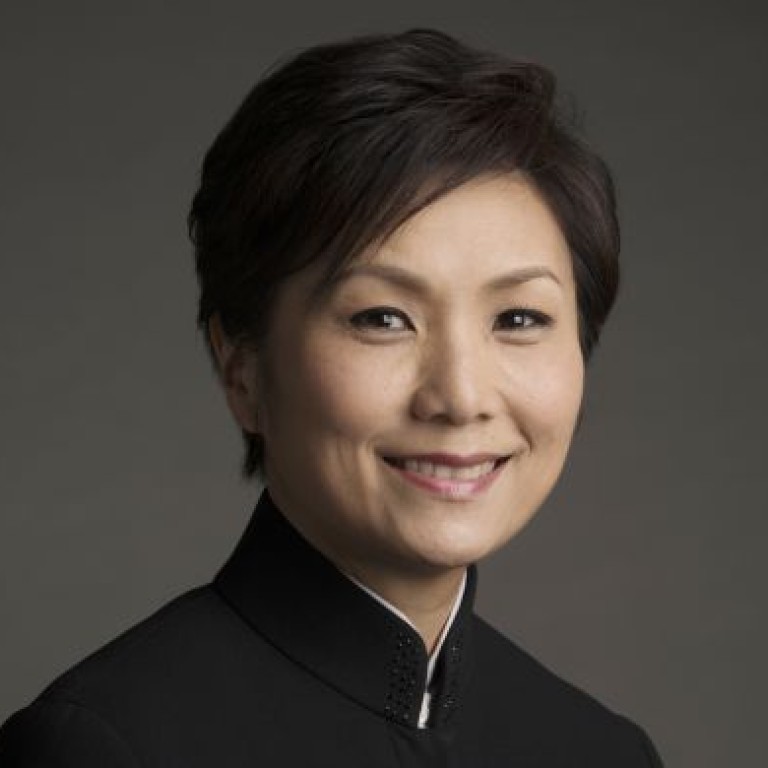
Yip Wing-sie
Yip Wing-sie is the music director and principal conductor of the Hong Kong Sinfonietta. After a successful career as a violinist she went on to conduct the Hong Kong Philharmonic and Guangzhou Symphony Orchestras, before joining the Sinfonietta in 2002. The maestro tells Andrea Lo about the importance of communication, and why she could never retire.
I was born in Guangzhou. I came to Hong Kong before I turned 1 year old.
My parents definitely inspired me. After they graduated from the Central Conservatory of Music, my father had an opportunity to study in the former Soviet Union.
Because of his family background, he wasn’t able to go in the end. That’s how the political climate was back then.
I went to England to study music. It took some time before I started learning about conducting.
I’m a pretty practical person. I had plan Bs and plan Cs figured out.
I like conducting, but I know timing is important in a job like this. Just because I wanted to be a conductor doesn’t necessarily mean I would become one.
In music, there are so many directions you can take. I’ve thought about what I would have done if I wasn’t a conductor. I would probably have played the violin, or become a teacher.
Why is classical music called classical music? Because it is something that lasts through time.
There is well-written pop music that lasts a long time, but for classical music to last 300 years, it means there is value in its existence.
People might find it boring, or worry that the performance goes on for too long.
Our concerts have successfully taught the audience not to be afraid of classical music. Some of them are only an hour long. If you watch a performance and decide you don’t like it, you don’t have to come again.
Hong Kong has a limited number of performance venues. It’s a hindrance to the development of classical music as a whole.
We had been hoping the venues in West Kowloon would soon be completed, but the concert hall isn’t going to be considered until at least 2020. It’s a big disappointment.
The government has given us funding, but it’s still some distance away from what we see as an acceptable level.
We liaise with them, hoping for them to understand. In order to have a high- quality orchestra, it’s worth supporting us continuously.
That depends on our government—but right now, they are facing a lot of challenges.
People who like music and the arts have more creative minds. They learn how to share music with others. It should help our society become a more harmonious one.
The fast pace of living in Hong Kong is a difficult challenge for artists. People working in the arts need time to think and digest.
Sometimes I wonder if music students really get to listen to what they’re playing, with so much noise going on.
I’ve seen so many kids taking up several instruments, but when they get to the teen years and have to deal with public exams, everything stops. And from then on, they stop having anything to do with music.
If your passion isn’t there, and you’re not prepared to discipline yourself to practice for six to seven hours a day, then being a musician is very difficult.
Nowadays, competition is fierce—especially for a performer.
Every year, there are tons of competition winners. When there are so many people to choose from, other factors start coming into play: like how good looking someone is.
As a soloist, you have to learn how to communicate. The interactive element breaks the ice. You can’t just play your piece and go into hiding. These days, that doesn’t work.
The best thing about being a conductor is being able to perform a piece of music with a group of musicians. There are so many contrasting sounds produced by an orchestra.
A musical instrument is simply an object. I can control my own fingers when I play the violin. But as a conductor, the instruments you’re controlling are musicians.
The most difficult part is the fact that your instrument involves so many musicians. Every musician has their own mind. As a conductor, knowing how to communicate with them is a huge challenge.
Some people are born with skills in communicating with other people. As a conductor, your character determines whether or not you can be a successful one. It comes down to leadership skills, and whether or not you’re a confident person.
It’s not something that you can try to achieve in a couple of years. How old I am is how long it has taken me to get there.
You don’t get to retire as a conductor. You can do more, or you can do less.
After you retire, what would you do? Music is for life.

